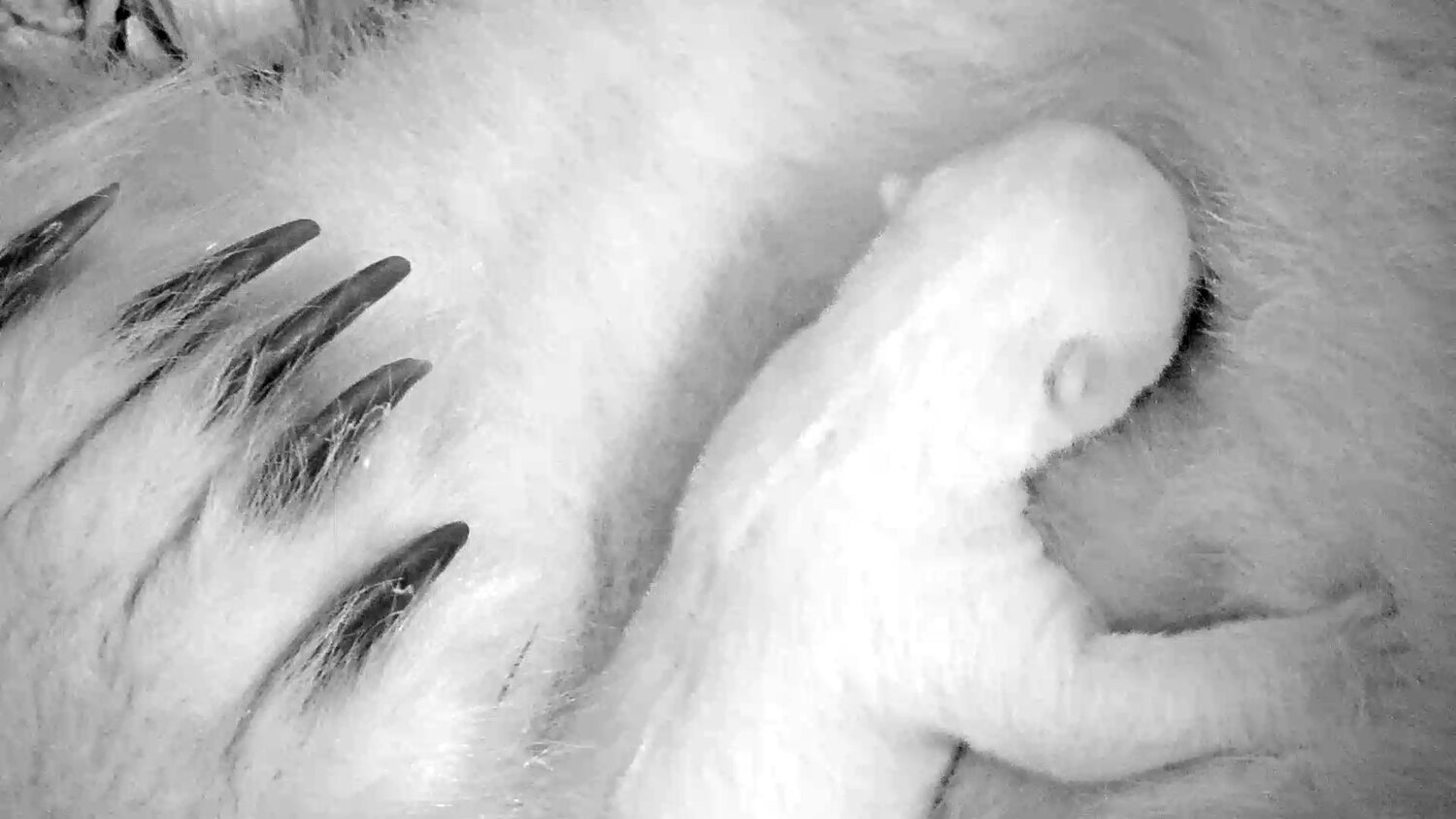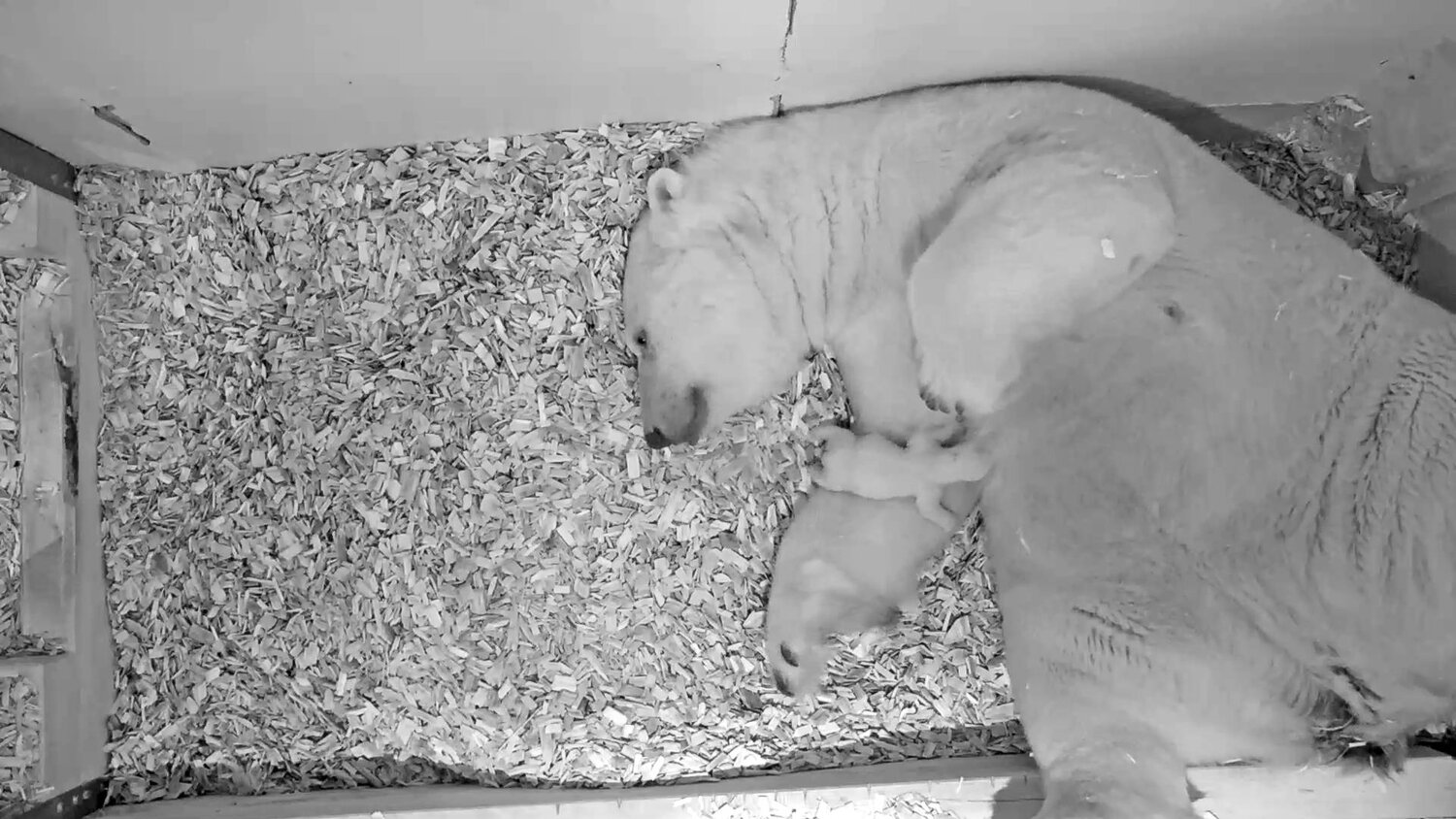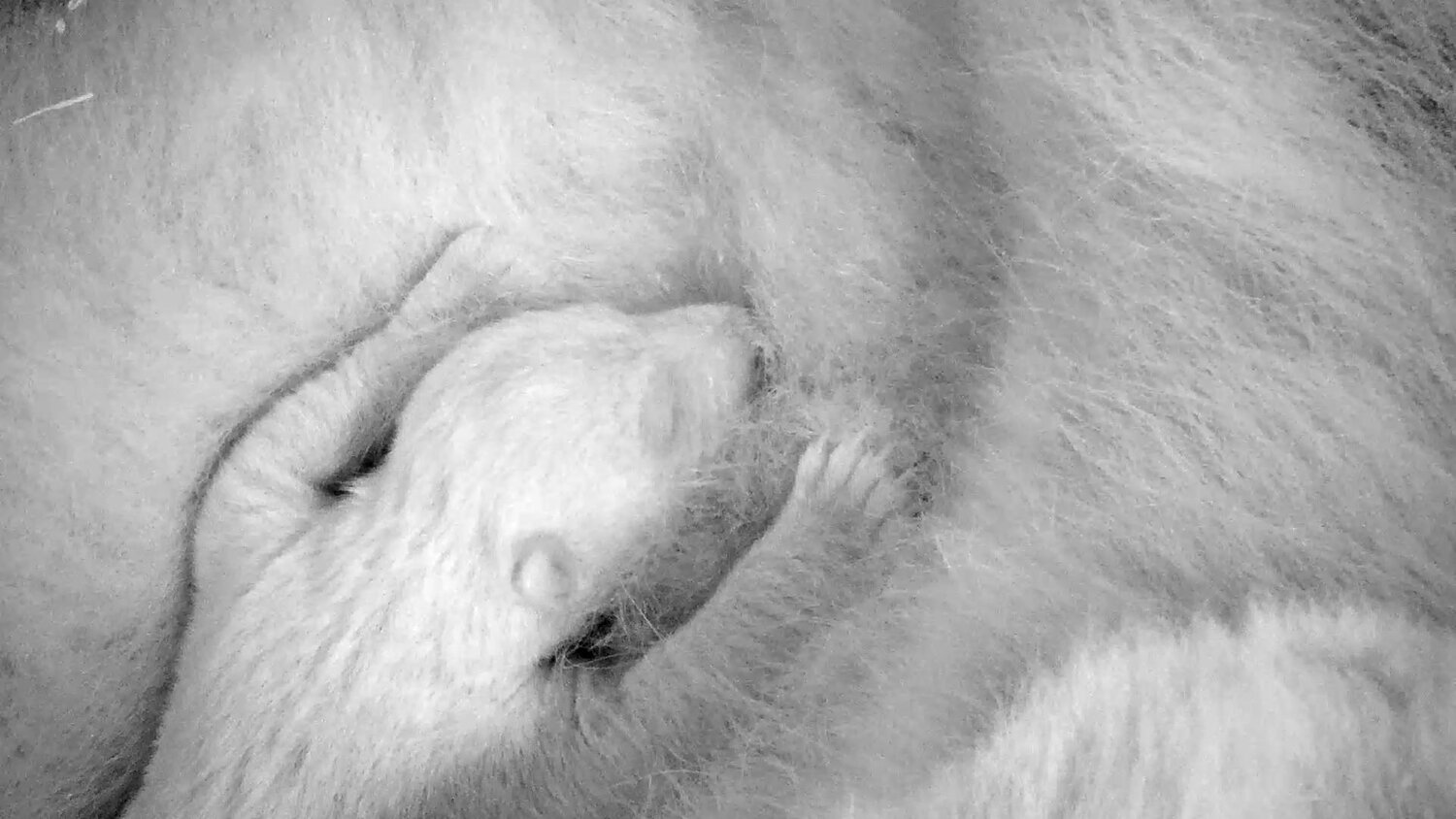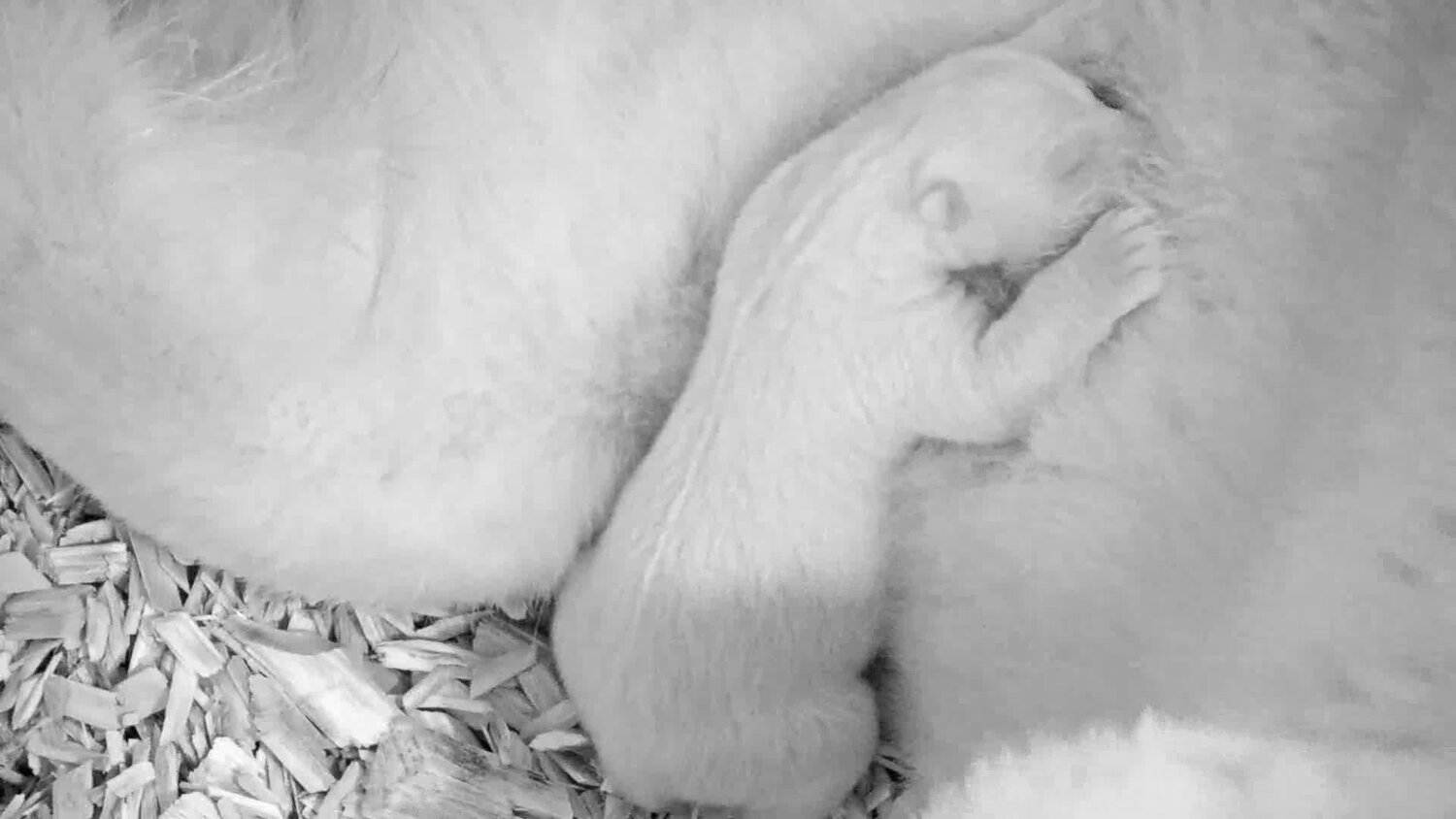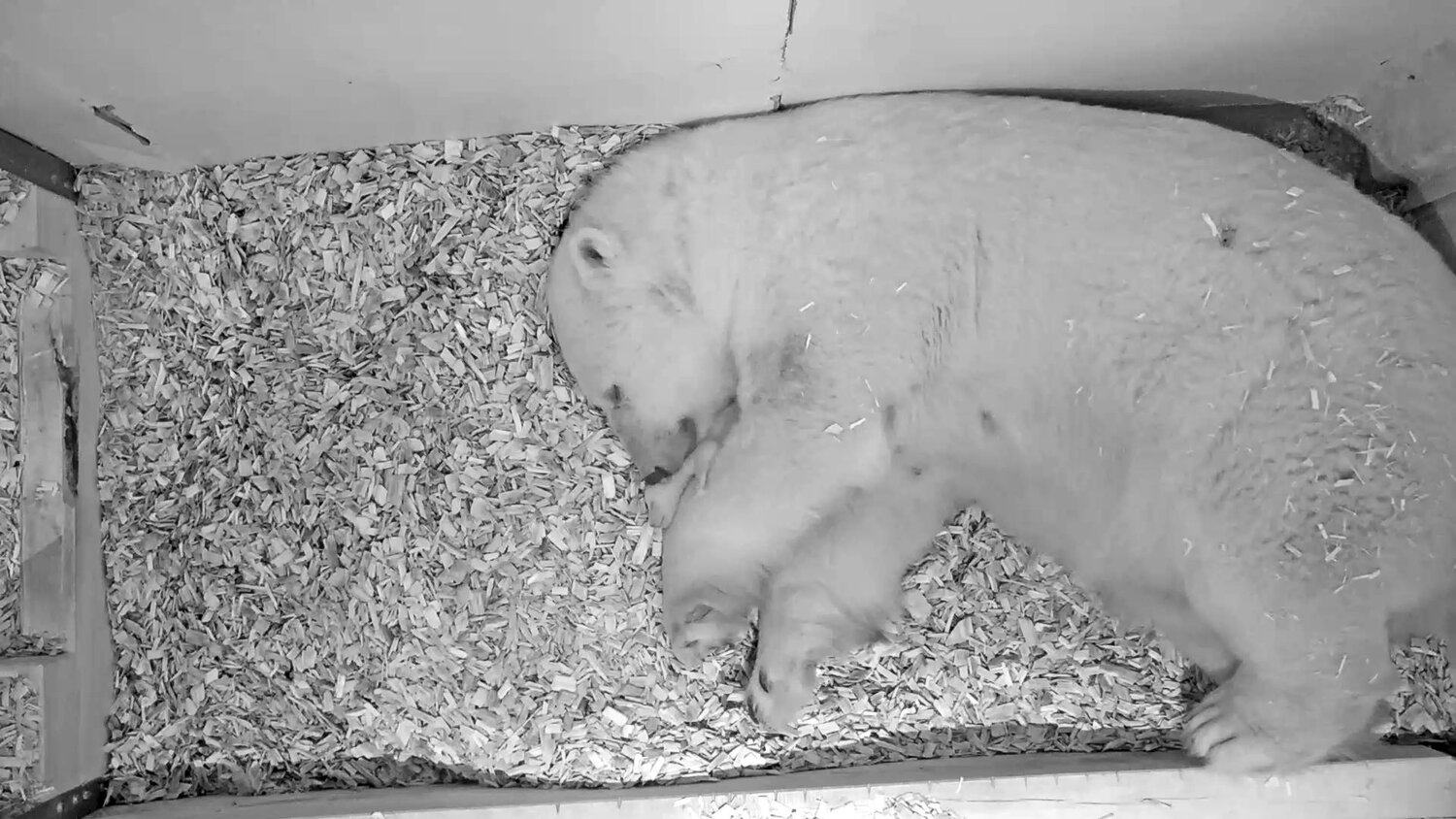As soon as he wakes up every morning, curator Dr Florian Sicks grabs his phone and checks the live footage from the polar bear birthing den. He then enters everything polar bear mum Tonja and her tiny cub do in a detailed log: “6:30 to 7:10: mother and baby sleeping; 7:10 to 7:25: cub drinks milk; 7:25 to 7:29: Tonja licks her cub clean.” Dr Sicks is particularly interested in how the cub is feeding. “I am happy with how things are progressing and am very pleased that the cub has survived those first critical ten days,” he says. “But however joyful the news is, we mustn’t forget that polar bears have an extremely high infant mortality rate.” The other Tierpark staff are also rooting for Tonja and her cub, taking regular peeks at the birthing den footage. Sophisticated camera technology allows keepers to look directly into the cosy den without disturbing the mother and child.
The cub is currently drinking its mother’s nutritious milk around eleven times a day. Tonja herself is living entirely off the thick layer of fat that she put on in the spring and summer. She occasionally leaves her baby for a very short time to drink from the water dispenser, but the rest of the time the cub gets to nestle into its mother’s warm fur.
Background:
Tierpark Berlin’s female polar bear Tonja gave birth to her cub on 1 December 2018, at 2:33 a.m. She had mated with male bear Wolodja (7) several times in March and April. In the summer, Wolodja moved to Zoo Berlin to give Tonja plenty of peace and quiet for her presumed pregnancy and birth. In the wild too, polar bears are solitary animals, and males are not involved in raising the young.
Thanks to sophisticated new camera technology, the experts at Tierpark Berlin are able to watch the birthing den around the clock, and can even zoom in to see how well the cub is drinking. Infant mortality in polar bears is extremely high. In the wild, around 85 percent of polar bears do not live past their second birthday. Because absolute peace and quiet is crucial for the successful rearing of young polar bears, no one will approach the birthing den over the next few weeks.
The polar bears are currently not on view to Tierpark visitors. In zoos just as in the wild, mothers and their cubs do not leave their dens until the spring.
